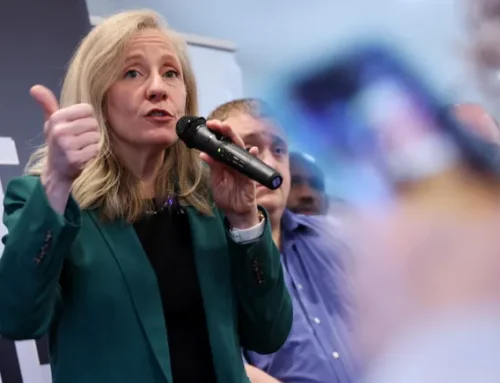Town of Babylon to update cannabis law to include displays
April 23, 2025
The Town of Babylon is seeking to update its illegal cannabis law by prohibiting the display of marijuana in unlicensed stores.
The town is proposing to add the word “display” to its existing law, so both the sale and display of cannabis would be prohibited by stores without them first obtaining the required licenses and complying with zoning restrictions.
A public hearing on the law addition will be held at 3 p.m. Wednesday at Town Hall in Lindenhurst.
Town officials said the law change is an attempt to crack down on stores illegally selling pot.
“More and more of these places are selling prepackaged cannabis from out of state,” said Gerard Gigante, Babylon’s public safety commissioner.
Gigante said the addition to the law helps code enforcement issue citations without having to purchase cannabis or witness a purchase.
Recreational marijuana was legalized for adults 21 and older in the state in 2021 but can only be sold at state-licensed dispensaries. Babylon, Brookhaven, Riverhead and Southampton are the only towns on Long Island that have opted into cannabis sales.
Babylon requires marijuana dispensaries be located in industrially zoned areas, outside a 750-foot radius from residences and a 500-foot radius of schools, libraries, parks and any other areas “where minors congregate.”
Under state law, local municipalities where dispensaries are located collect a percentage of the tax revenue. Babylon has so far collected almost $3 million.
In the last two years, the town has issued four citations for illegal cannabis sales, all to Kaws Convenience in Deer Park, according to Babylon spokesman Ryan Bonner. He said the town in January obtained a search warrant and found 237 prepackaged bags of marijuana, along with 521 marijuana vapes, 160 jars of prerolled marijuana cigarettes, 130 packages of edibles, 30 resin cards and just under a pound of unpackaged marijuana.
Bonner said an attorney for the corporation that owns the store pleaded guilty in district court on March 7 and the store was issued $2,000 in fines. All of the confiscated products, which Bonner said were worth about $100,000, were destroyed.
A man reached by phone Tuesday who said he was the owner of Kaws denied that the store had been fined and hung up on a Newsday reporter.
The state also has been targeting illegal marijuana sales, with the Office of Cannabis Management seizing more than $67 million in illicit products in an 11-month period. Daniel Haughney, director of enforcement and investigation for the office, said it supports Babylon adding language about the display of marijuana to its law.
“Unlicensed stores undermine the legal market, may pose a threat to public health, and put consumers at risk,” Haughney said in an email.
Gahrey Ovalle, president of the Long Island Cannabis Coalition, said he supports the move, which he said will make communities safer and help legal dispensaries.
“What we saw in the city, when the illicit shops were closed down, the revenue generated by the legal cannabis dispensaries nearby started to climb by 20, 50 and 75% more,” he said. “That’s a reflection of the local consumer wanting to buy legal, safe products and staying in those communities to purchase them.”
The Town of Babylon is seeking to update its illegal cannabis law by prohibiting the display of marijuana in unlicensed stores.
The town is proposing to add the word “display” to its existing law, so both the sale and display of cannabis would be prohibited by stores without them first obtaining the required licenses and complying with zoning restrictions.
A public hearing on the law addition will be held at 3 p.m. Wednesday at Town Hall in Lindenhurst.
Town officials said the law change is an attempt to crack down on stores illegally selling pot.
“More and more of these places are selling prepackaged cannabis from out of state,” said Gerard Gigante, Babylon’s public safety commissioner.
Gigante said the addition to the law helps code enforcement issue citations without having to purchase cannabis or witness a purchase.
Recreational marijuana was legalized for adults 21 and older in the state in 2021 but can only be sold at state-licensed dispensaries. Babylon, Brookhaven, Riverhead and Southampton are the only towns on Long Island that have opted into cannabis sales.
Babylon requires marijuana dispensaries be located in industrially zoned areas, outside a 750-foot radius from residences and a 500-foot radius of schools, libraries, parks and any other areas “where minors congregate.”
Under state law, local municipalities where dispensaries are located collect a percentage of the tax revenue. Babylon has so far collected almost $3 million.
In the last two years, the town has issued four citations for illegal cannabis sales, all to Kaws Convenience in Deer Park, according to Babylon spokesman Ryan Bonner. He said the town in January obtained a search warrant and found 237 prepackaged bags of marijuana, along with 521 marijuana vapes, 160 jars of prerolled marijuana cigarettes, 130 packages of edibles, 30 resin cards and just under a pound of unpackaged marijuana.
Bonner said an attorney for the corporation that owns the store pleaded guilty in district court on March 7 and the store was issued $2,000 in fines. All of the confiscated products, which Bonner said were worth about $100,000, were destroyed.
A man reached by phone Tuesday who said he was the owner of Kaws denied that the store had been fined and hung up on a Newsday reporter.
The state also has been targeting illegal marijuana sales, with the Office of Cannabis Management seizing more than $67 million in illicit products in an 11-month period. Daniel Haughney, director of enforcement and investigation for the office, said it supports Babylon adding language about the display of marijuana to its law.
“Unlicensed stores undermine the legal market, may pose a threat to public health, and put consumers at risk,” Haughney said in an email.
Gahrey Ovalle, president of the Long Island Cannabis Coalition, said he supports the move, which he said will make communities safer and help legal dispensaries.
“What we saw in the city, when the illicit shops were closed down, the revenue generated by the legal cannabis dispensaries nearby started to climb by 20, 50 and 75% more,” he said. “That’s a reflection of the local consumer wanting to buy legal, safe products and staying in those communities to purchase them.”
Search
RECENT PRESS RELEASES
Related Post




